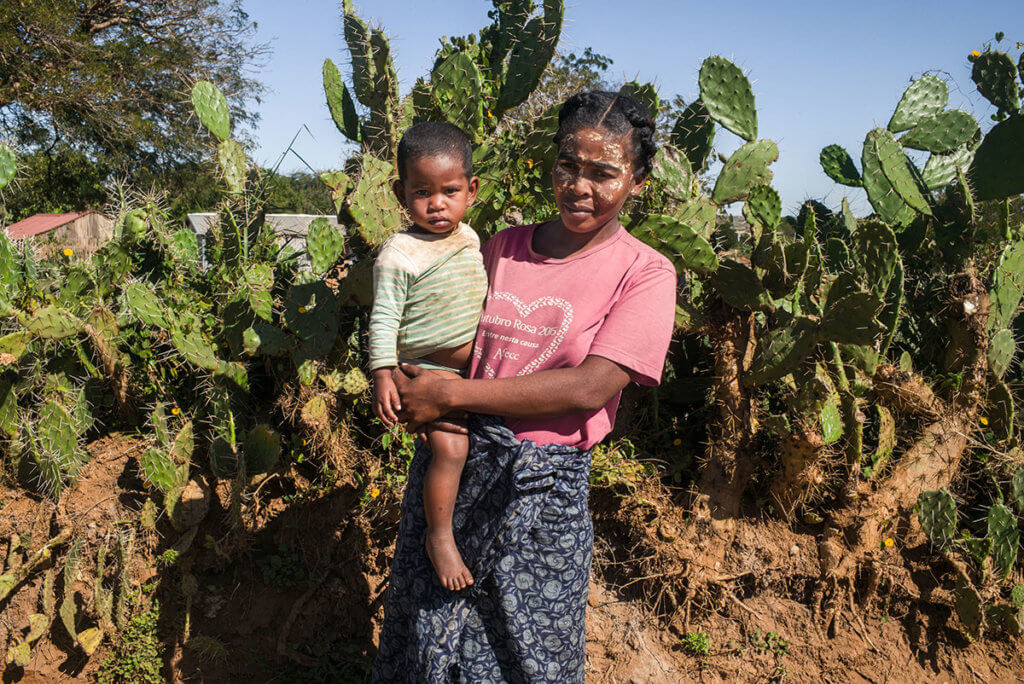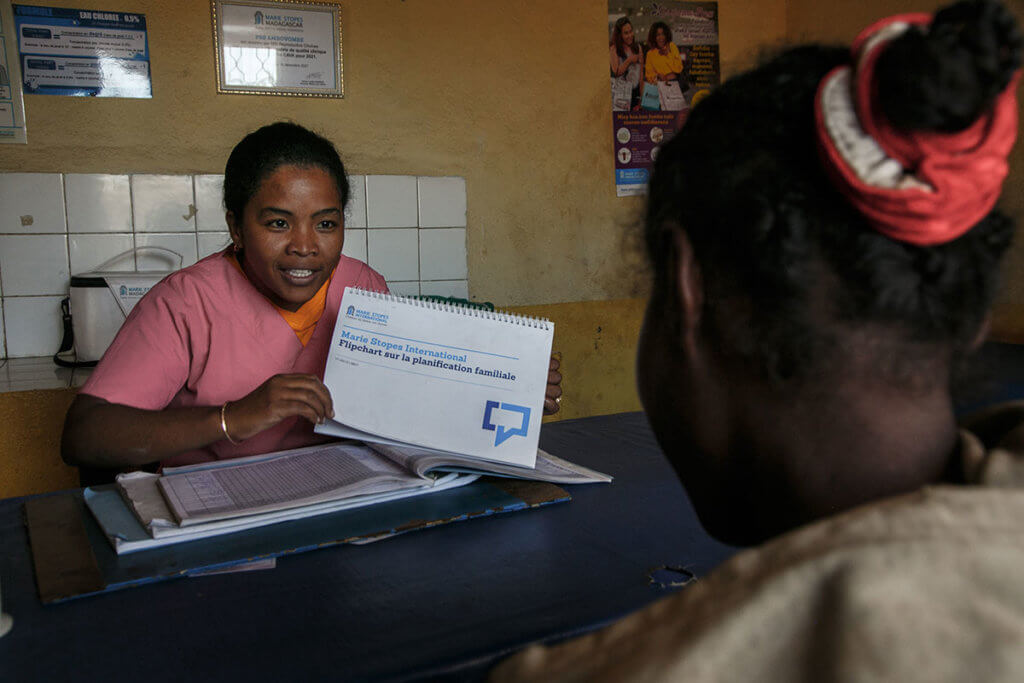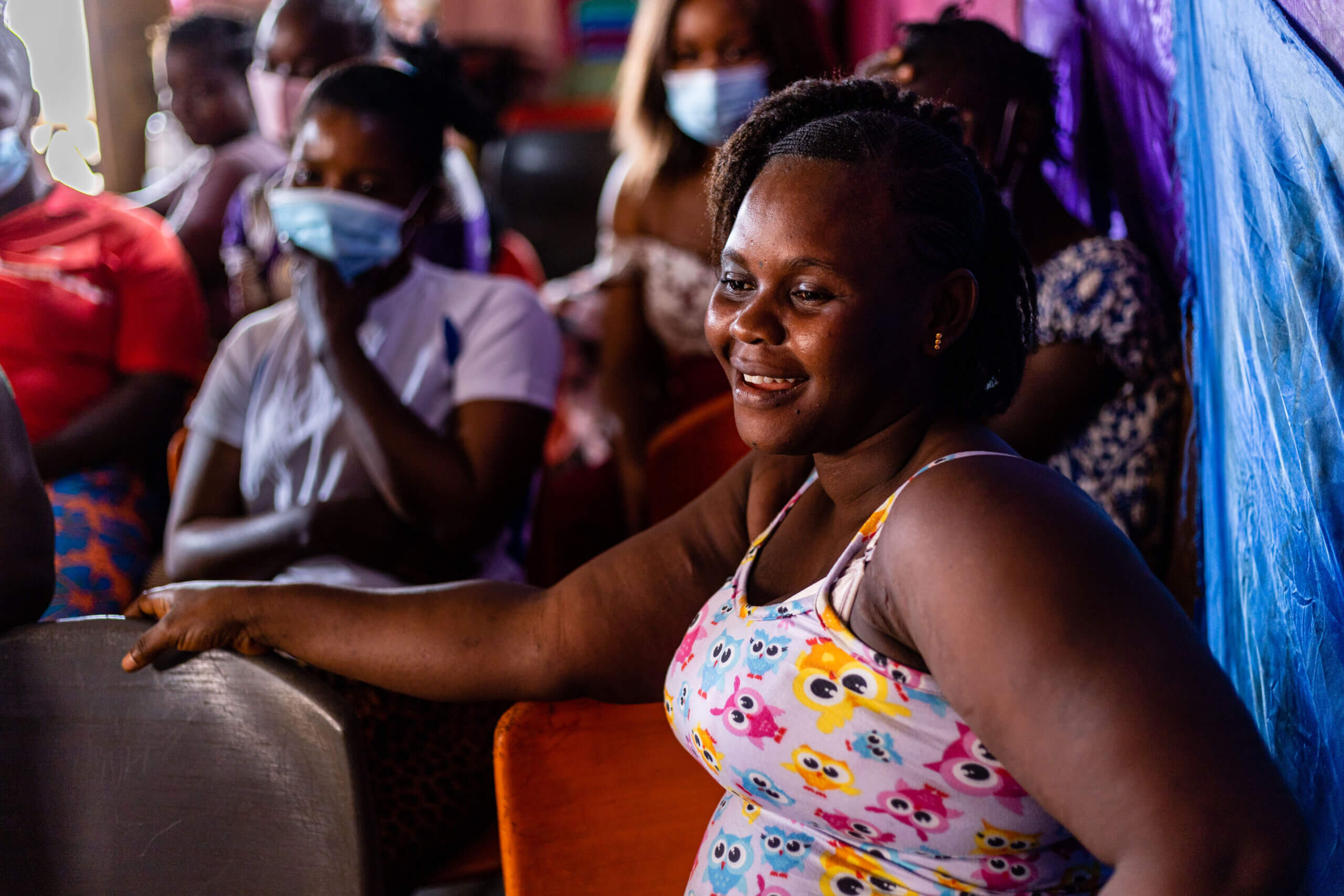Climate Change and the Women of Madagascar
Women and young people are bearing the brunt of the climate crisis. But they aren’t just victims: Their involvement is critical to finding solutions, building resilience and accelerating adaptation efforts.
On a recent outreach trip to the Androy region of Madagascar MSI spoke to women about the drought and the tiomena winds that have devastated farming in recent years. These are people living on the frontlines of the climate crisis, making decisions about how to best care for their families. Here’s what they want the world to know about climate change and the importance of access to contraception.
Valiasae, 25 years old, four children
“Like most people in our village, our livelihood is based on cultivating crops. Due to the drought and the tiomena winds, we are unable to produce enough to feed ourselves and make a living. It’s devastating to see all our hard efforts disappear. We work hard with whatever means we have and without the rain everything is destroyed. Because of this my husband and I decided to use family planning methods as soon as our first child was born, even though it is forbidden in our community.”

Juliette, 30 years old, three children
“Having a few children is very challenging for a single mother like me as my children rely on me and me only. Life was particularly difficult after my third child was born. I already couldn’t find work and the money to put food on the table when drought and famine began affecting our village. To survive I had to send my first two children to gather food and water from 15 kilometers away.”

“Because climate change is making life difficult, I decided to get the IUD to offer longer term protection as I don’t want any more children. When MSI next returns, I am hoping to get a tubal ligation so that I don’t have to worry again. I would like to be able to fully dedicate my time towards working for my children and ensuring that they have a brighter future than mine.
While this is still a very challenging task due to climate change, I remain optimistic because I feel confident that I have the best way to achieve it.”
Hanta, 39 years old, four children
“Using contraception has helped me deal with the difficulties of life, which are only getting worse and worse as a result of climate change. There is the drought, the driving tiomena winds that block out the sun, destroy everything in its path, and devastates much of our farmland. Many children where I live are dying of malnutrition.”

“I have four children and I have suffered so much because of climate change. I can’t imagine what it would be like to have eight or 10 children, like so many women who live here in my community.
Before, life was not so hard. The soil was once fertile and the harvest was good, but not now. Fortunately for me, I’ve been able to access contraception and have helped my husband with this situation.”
Access to modern, safe contraceptives helps women adapt to the climate crisis, and supports better opportunities for millions of women and their children. While navigating the climate crisis – like any crisis – it is crucial that women and girls have the ability to decide if or when to become pregnant. And when women and girls can choose, they have a better chance of staying in education, pursuing their careers and being a part of finding climate solutions. That’s good news for everyone.






